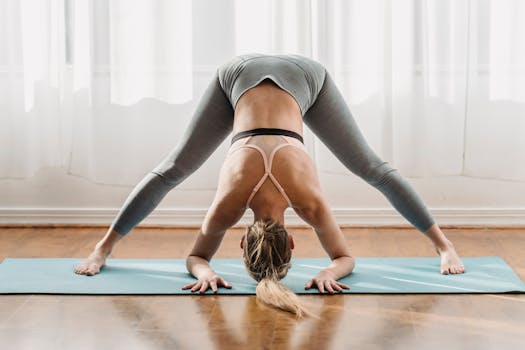Boost Your Mood: How Exercise Can Help Manage Anxiety and Depression
Takeaways: Exercise is not just about physical fitness; it’s a vital tool for mental health. Regular physical activity can help reduce symptoms of anxiety and depression, improve mood, and boost overall well-being. This article shares insights, personal experiences, and tips to get you moving!
Hey there! If you’re like me, you’ve probably had days when you feel like the weight of the world is on your shoulders. Anxiety and depression can hit hard, but guess what? There’s a simple, effective remedy that’s often overlooked: exercise! I know, I know – when you’re feeling down, the last thing you want to do is put on your sneakers. But hear me out: moving your body can be a game changer.
Why Exercise Matters for Mental Health
Let’s dive into why exercise is such a powerful ally in the battle against anxiety and depression. When I first started exercising regularly, I was surprised by how much my mood improved. It turns out, there’s solid science behind this!
Firstly, exercise releases endorphins, those feel-good hormones that can elevate your mood almost instantly. It’s like nature’s own antidepressant! I remember finishing a brisk walk and feeling a rush of happiness wash over me, as if I had just discovered a secret stash of joy. Plus, there’s something incredibly satisfying about accomplishing a workout, no matter how small.
Secondly, physical activity can help reduce levels of the body’s stress hormones, such as adrenaline and cortisol. When I was feeling particularly anxious, a short jog or a dance session in my living room helped me feel grounded and more in control. It’s like giving your brain a much-needed reset!
Moreover, exercise can improve self-esteem and confidence. When I started seeing changes in my body and energy levels, I felt more positive about myself. It’s as if every workout was a little victory that contributed to my overall well-being. And let’s not forget the social aspect! Joining a local fitness class or a running group can help you connect with others and build a support network, which is crucial when you’re dealing with mental health challenges.
Practical Tips to Get Started
Now that you know why exercise is vital, let’s talk about how to incorporate it into your life without feeling overwhelmed. Trust me, you don’t need a fancy gym membership or hours of free time to reap the benefits!
1. Start Small: The key is to start small. Aim for just 10-15 minutes of movement each day. It could be a brisk walk around your neighborhood or a quick yoga session at home. I often start my mornings with a 10-minute stretch, and it sets a positive tone for the day.
2. Find What You Love: Don’t force yourself to do exercises you hate. Experiment with different activities until you find something that excites you. Whether it’s dancing, swimming, hiking, or even gardening, the important thing is to enjoy it!
3. Create a Routine: Building a routine can make it easier to stick with it. I like to schedule my workouts like appointments. This way, I hold myself accountable and make it a priority.
4. Listen to Your Body: Some days will be harder than others, and that’s okay. Listen to your body and give yourself grace. It’s about progress, not perfection!
5. Join a Community: Consider joining a local fitness class or online group. The camaraderie and encouragement can make a huge difference. Plus, you’ll meet people who share your goals and challenges!
FAQs

A: Aim for at least 150 minutes of moderate aerobic activity each week. This can be broken down into shorter sessions throughout the week.
Q: What types of exercise are best for anxiety and depression?
A: Any form of physical activity can help, but activities that get your heart rate up, like jogging, cycling, or dancing, are particularly effective. Mind-body exercises like yoga and tai chi can also be beneficial.
Q: What if I don’t have time to exercise?
A: Even short bursts of activity can be effective. Try to incorporate movement into your daily routine, such as taking the stairs instead of the elevator or doing a quick workout during your lunch break.
Q: Can I really improve my mood with exercise?
A: Yes! Numerous studies have shown that regular exercise can significantly reduce symptoms of anxiety and depression. It’s a powerful tool for enhancing your overall mood and mental well-being.
Q: What if I don’t feel motivated to exercise?
A: Motivation can be tough, especially on low days. Try to remind yourself of how good you feel after exercising. Sometimes, just putting on your workout clothes can help you get started!
